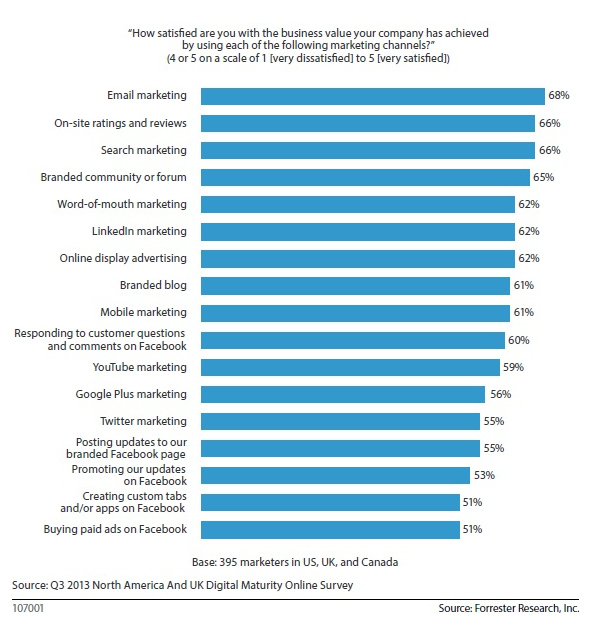

In the halls of Facebook and Twitter, they're cursing Nate Elliott's name.
That's because in the past two weeks the Forrester vice president and principal analyst has delivered two withering reports, one on Facebook and the other on Twitter, the latter coming just two days before the company's vaunted IPO. The common theme: that marketers are struggling to find value in either site, and in social media as a whole. Given that both Facebook and Twitter are both primarily ad-supported businesses, this is a rather devastating critique. And for Twitter, the timing couldn't be worse.
Forrester Questions Twitter's Value to Marketers http://t.co/cWrJBQesHu Nate Elliot's on a mission. First Facebook, now Twitter.

Josh Sternberg
@joshsternberg
Forrester Questions Twitter's Value to Marketers http://t.co/cWrJBQesHu Nate Elliot's on a mission. First Facebook, now Twitter.
The parallels in the reports are obvious and have been widely noticed, but Elliott told BuzzFeed that his reports, while sharing a common theme, are separated by a few critically important differences.
"Marketers are struggling to find value and figure out social, in general," he said. "Facebook, Twitter, and social media are all clustered toward the bottom of the rankings in terms of marketer satisfaction. You could argue that's because they're still new, but other things, like mobile, are newer than social and they have higher satisfaction ratings."

And even though satisfaction rankings for Twitter and Facebook are similarly low, the story behind the data paints a far more positive picture for Twitter going forward.
"Twitter's only been accepting ad buys for about two years, and it's still looking to tailor its ad units and model. This isn't a place yet where people are sinking billions of dollars, like Facebook. Unlike Twitter, most marketers have this feeling that they've been burned by Facebook," said Elliott.
For Twitter, Elliott and Forrester's main concern is that the network will abandon its mission to help brands and companies actually connect with users in favor of just selling ads. "Facebook decided on a raw advertising model rather than trying to connect brands to customers, and when it did that, Facebook divorced its own definition of success from that of the marketers," Elliott said, arguing that Facebook is only paying attention to its bottom line.
"[Facebook] doesn't seem to recognize that they're selling a product most marketers don't want. It thinks they're happy and because they're spending money, things must be working, but I have real questions as to how far into their list of advertisers they actually go when they want to gauge satisfaction," he added.
There seem to be two takeaways from all this. First, that social ads are far from "figured out." In fact, they're a total mess. Both email and search came up with monetization schemes that not only satisfied companies, but were also profitable (see Google's $39 million search revenues), and they did it in less time than it's taken social.
The second is that Twitter, on the eve of its big money moment, has an opportunity to learn from Facebook's ad woes by actually listening to the concerns of the companies paying Twitter. According to Elliott, Twitter's shown promising signs that it knows how to listen. After all, it's worked hard to court TV networks and executives and takes pains to test its ad products rigorously before rolling them out widely.
There's no doubt tomorrow is an important day for Twitter and the tech world as a whole, but it's far from a crowning moment; this sector of the ad industry, and every company in it, has a long way to go. Facebook, for example, seems to be finally making money — despite itself. (And it may be a hollow victory, as the company seems to be wearing at least some of its advertisers thin.)
Twitter, on the other hand, has the luxury of time. But while Elliott and others remain optimistic that Twitter "could become the go-to site for ... the kind of social marketing we believe Facebook has left behind," there's no way to know how "public Twitter" will behave.
The company has time, but that's a double-edged sword. Maybe Twitter will figure it out! Or maybe it's just that Twitter hasn't had a chance to disappoint yet.
